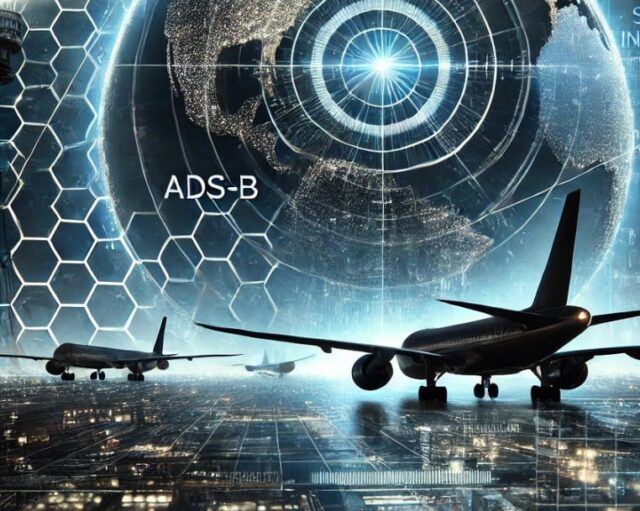
Signal decoding has become a critical tool across many industries today. Organizations in various fields have adopted advanced decoding solutions to address security, communication, and intelligence needs. Whether it’s intercepting encrypted communications or ensuring smooth data transmission, industries worldwide gain value from these solutions.
Let’s explore the industries that benefit most from signal decoding solutions.
Table of Contents:
- Introduction
- Key Points
- Defense and Intelligence
- Aviation
- Financial Markets
- Maritime Industry
- Media Broadcasting
- Telecommunications
- Space Exploration
- Law Enforcement
- FAQs
- Conclusion
1. Defense and Intelligence

Signal decoding plays a vital role in defense operations. If someone needs to intercept encrypted communications from potential adversaries. Using advanced solutions, they can decode signals from encrypted sources, enabling better decision-making. Signal decoding software assists in electronic warfare, helping understand their opponents’ strategies. This software also aids in protecting national assets by securing communications.
Defense and intelligence agencies rely on digital signal decoder software for encrypted communication intercepts. Expert companies provide solutions for electronic support measures (ESM) and electronic attack (EA) for defense teams globally.
2. Aviation

In aviation, decoding signals is crucial for real-time communication between pilots, air traffic controllers, and ground support teams. These solutions allow aircraft to receive and send precise information, improving navigation accuracy. Communication between towers and planes often faces challenges, especially during extreme weather conditions. This ensures that all vital data, including weather updates, altitude levels, and landing instructions, are accurately decoded in real-time.
With the growing number of flights and air traffic, the importance of decrypting signals in aviation continues to grow. Safety relies on clear, precise, and fast communication, especially in complex airspaces.
3. Financial Markets
The financial industry thrives on data. With global markets operating at high speeds, decrypting data signals ensures that financial institutions can make decisions quickly and securely. Trading platforms often depend on fast and accurate decrypting of data from multiple sources to secure trades and protect sensitive financial information.
Signal decoding helps ensure that encrypted financial transactions stay safe. Traders and financial analysts can monitor stock markets and currency fluctuations in real time, without any risk of data breaches or miscommunication.
4. Maritime Industry

Ships navigating through international waters face numerous challenges. Weather patterns, ocean currents, and regional regulations can all impact a ship’s route. Decoding solutions help captains and crew maintain contact with shore operations, other ships, and international monitoring systems.
Signal decoding improves navigation by allowing ships to receive and interpret signals from satellites and other marine vessels. This ensures that ships can safely navigate even in challenging weather conditions. Additionally, decrypting ensures that rescue operations can respond quickly to emergencies by interpreting distress signals from other vessels.
5. Media Broadcasting

The broadcasting industry benefits significantly from decrypting solutions, ensuring high-quality signal transmission across various platforms. From TV stations to live streaming services, they help broadcasters manage their signals, ensuring that content reaches audiences without any interruptions.
Broadcasting often involves transferring data over long distances, especially when airing live events. The signal may degrade or become distorted. Using decrypting solutions, broadcasters can guarantee that signals reach audiences in the best quality possible, preventing delays or quality loss. Moreover, media companies rely on it for encrypting sensitive content, avoiding unauthorized access to broadcasts.
6. Telecommunications
Telecommunications heavily relies on decoding solutions to manage the massive flow of data across networks. As mobile devices and internet-connected devices multiply, ensuring clear and secure transmission becomes critical. Signal decrypting helps telecommunication providers manage network traffic, resolve interference, and protect customer data from cyber threats. By decoding encrypted messages and data transfers, telecom companies can offer smooth, uninterrupted service across different platforms and devices.
Telecom providers also use it for monitoring network performance. Signal decoding allows them to identify network inefficiencies and improve service quality. As the telecom industry continues to expand with technologies like 5G, decrypting will play an increasingly important role in optimizing connections and protecting users’ privacy.
7. Space Exploration

Space exploration demands precision and flawless communication between spacecraft and ground control. Decrypting plays a critical role in receiving data from space, including scientific readings, communication between astronauts and mission control, and navigational instructions. Signals from space often encounter distortion due to distance, weather, and other cosmic factors. These solutions allow for the retrieval of clean and accurate data, essential for space missions’ success.
Decoding also helps scientists understand signals from satellites orbiting Earth and from deep space missions. Without these solutions, vital information gathered from distant planets, asteroids, and space phenomena would be lost or misinterpreted.
8. Law Enforcement
Law enforcement agencies worldwide use decoding tools to monitor and intercept communication between criminal organizations. In an age where encrypted messages and secure communications are widely used by criminals, decrypting solutions provide law enforcement with a means to gather evidence and prevent crimes. Whether it’s tracking illegal transactions or intercepting potentially harmful communications, decoding tools offer law enforcement the ability to stay ahead.
It is also useful for forensic investigations, helping law enforcement recover vital data from devices involved in criminal activities. Decoding encrypted files and communications assists in solving cases, tracking suspects, and securing convictions.
FAQs
1. What exactly happens during signal decoding?
Signal decoding involves the process of transforming encrypted or scrambled signals into readable and usable data. It translates complex patterns into understandable information, allowing communication systems to function smoothly.
2. Are signal decoding solutions expensive to implement?
The cost of implementing signal decoding solutions can vary depending on the complexity of the system and the industry requirements. Some industries may need advanced, high-cost solutions, while others can implement more affordable options.
3. Do signal decoding tools require constant updates?
Yes, as new communication technologies and encryption methods develop, decoding tools often need regular updates to stay effective. This ensures that systems can keep up with evolving threats and technological advancements.
4. How do industries choose the right decoding solution for their needs?
Industries typically evaluate their specific communication and security needs, the complexity of the signals they deal with, and the level of encryption they face to select the appropriate decoding tools. Consulting with experts and solution providers helps tailor the right system for their operations.
Final Words
By expanding into industries like telecommunications, space exploration, and law enforcement, signal decoding proves its versatility across various sectors. Each industry, whether focused on security, communication, or data transmission, relies on decoding solutions to operate efficiently. As technology evolves, decoding will continue to play an integral role in optimizing communication and protecting sensitive information.









